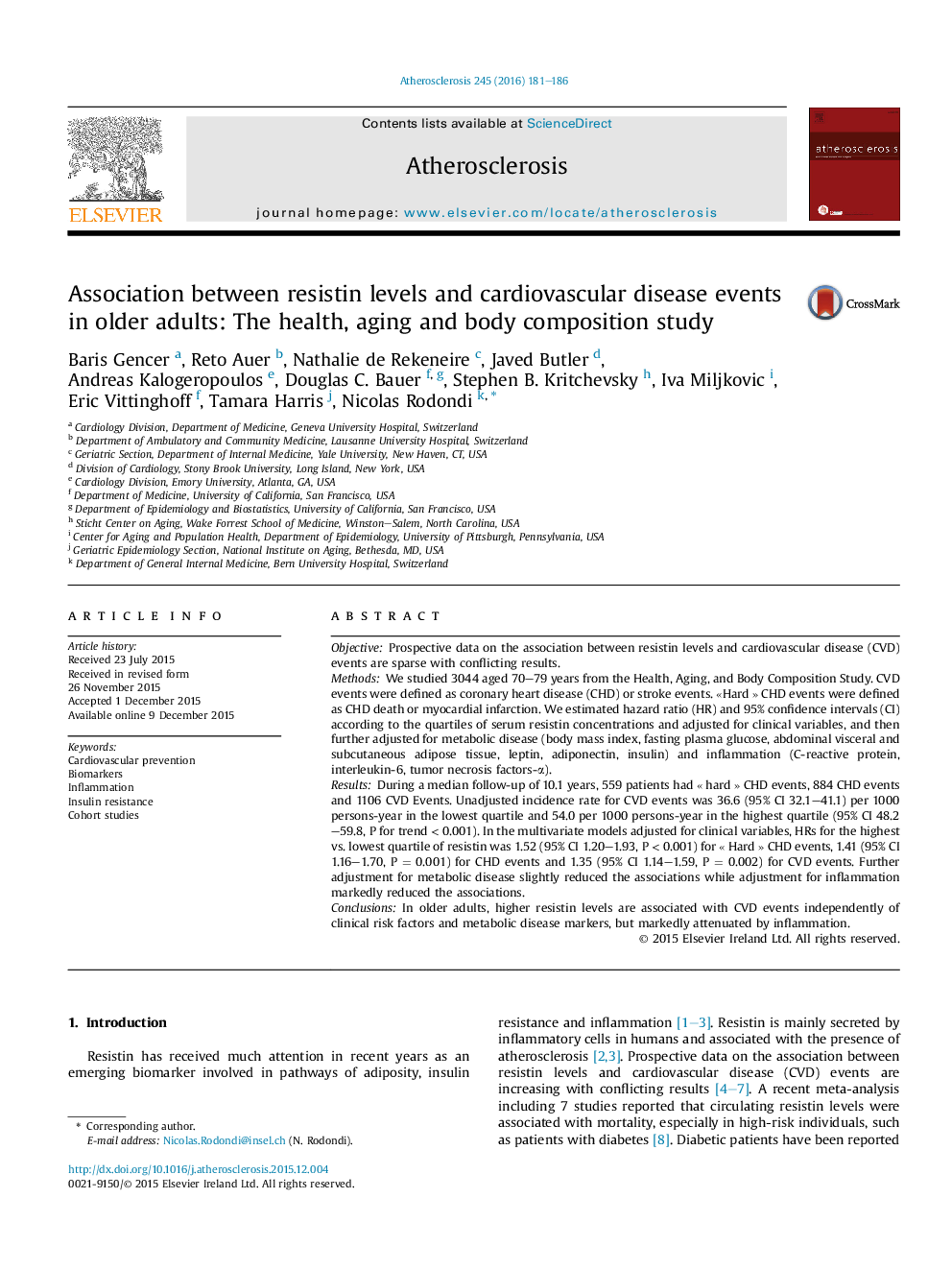| Article ID | Journal | Published Year | Pages | File Type |
|---|---|---|---|---|
| 5943580 | Atherosclerosis | 2016 | 6 Pages |
ObjectiveProspective data on the association between resistin levels and cardiovascular disease (CVD) events are sparse with conflicting results.MethodsWe studied 3044 aged 70–79 years from the Health, Aging, and Body Composition Study. CVD events were defined as coronary heart disease (CHD) or stroke events. «Hard » CHD events were defined as CHD death or myocardial infarction. We estimated hazard ratio (HR) and 95% confidence intervals (CI) according to the quartiles of serum resistin concentrations and adjusted for clinical variables, and then further adjusted for metabolic disease (body mass index, fasting plasma glucose, abdominal visceral and subcutaneous adipose tissue, leptin, adiponectin, insulin) and inflammation (C-reactive protein, interleukin-6, tumor necrosis factors-α).ResultsDuring a median follow-up of 10.1 years, 559 patients had « hard » CHD events, 884 CHD events and 1106 CVD Events. Unadjusted incidence rate for CVD events was 36.6 (95% CI 32.1–41.1) per 1000 persons-year in the lowest quartile and 54.0 per 1000 persons-year in the highest quartile (95% CI 48.2–59.8, P for trend < 0.001). In the multivariate models adjusted for clinical variables, HRs for the highest vs. lowest quartile of resistin was 1.52 (95% CI 1.20–1.93, P < 0.001) for « Hard » CHD events, 1.41 (95% CI 1.16–1.70, P = 0.001) for CHD events and 1.35 (95% CI 1.14–1.59, P = 0.002) for CVD events. Further adjustment for metabolic disease slightly reduced the associations while adjustment for inflammation markedly reduced the associations.ConclusionsIn older adults, higher resistin levels are associated with CVD events independently of clinical risk factors and metabolic disease markers, but markedly attenuated by inflammation.
